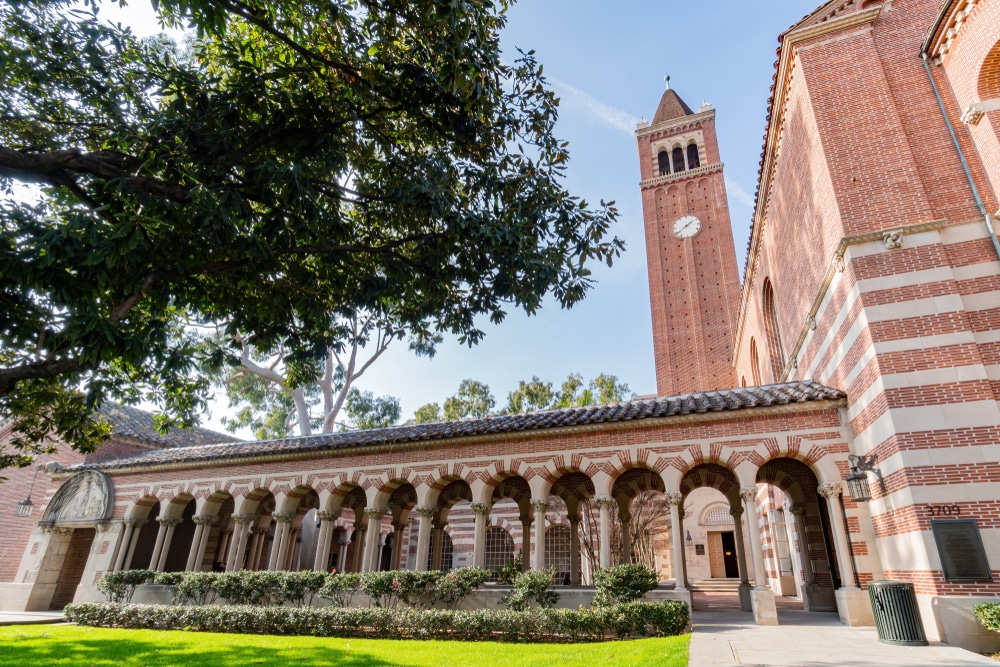Research Science Institute (RSI)
If it’s your dream to go to a leading university like Massachusetts Institute of Technology (MIT) and be among the most elite STEM researchers in the country, then the Research Science Institute is the perfect place to spend this summer, given it’s the country’s most competitive summer program for math and science students. The Research Science Institute (RSI) is a highly prestigious summer program that offers promising high school students the opportunity to engage in intensive scientific research.
The cost-free program is designed to expand your science, technology, and engineering skills and build new experiences and connections with cutting-edge researchers and famed Nobel Laureates.
What is the Research Science Institute (RSI)?
Founded in 1984, the Research Science Institute brings together 80 of the most prestigious high school students from all over the world for six-weeks to work with the most innovative researchers and professors to conduct lab work and create individual research projects in Harvard and MIT facilities. Research paper example
Learn from Nobel Prize-winning chemists, geneticists, biologists, physicists, and industry leaders in STEM research who previously attended the RSI program when they were high school students.
During the first week, students engage in tutorials and seminars to learn about the most groundbreaking advances in science and mathematical research. For the following four weeks, students are assigned an individual mentor to oversee and guide their work as they conduct their own research projects in MIT and Harvard labs.

In the final weeks of the program, students are given eight minutes to present their written and oral projects in front of a panel of distinguished Nobel Laureates and MIT staff. Five individual research projects for both oral and written presentations will be selected for their excellence, and winners receive a $1,000 scholarship toward their college tuition.
In 2019, the top 5 written winners covered a range of topics such as using single-cell RNA sequencing data to study plastid differentiation dynamics with nucleus-encoded gene expression, quantum integer-valued polynomials, cooperative relaxation in supercooled liquids, designing a general-purpose differential equation solver for parameter extraction, and the orbital decay of the x-ray binary.
The top 5 oral presentation winners ranged from topics such as transfer learning for automating science journalism, Artin’s Conjecture on primitive roots, The role of UV light in prebiotic chemistry, Fq rational points of hypersurfaces in weighted projective spaces over finite fields, and determining the size of the useful field of view (UFOV) based on target object attributes.

When students come to the RSI camp, they begin an experience that will lead to incredible lessons as well as the start of many strong relationships. When children come to RSI, they often get to experience – for the first time – what it is like to be surrounded by people who are passionate and excited about many of the exact same things as they are.
By the end of the program, it is very typical that many of the students have formed meaningful friendships that will follow them home, to college, and beyond. There are numerous groups on social media and online that allow students to keep in touch.
Beyond that, RSI feels a strong sense of responsibility for the students who go through their camp and try as best they can to find top internships or even jobs. Basically, once you get into and attend RSI, you are part of the group for life and will always find a family rooted in a love for science with RSI.

How hard is it to get into the Research Science Institute?
If you already like what you have read about RSI, chances are good that you are already curious about your chances of getting into this highly prestigious and highly competitive program. For that reason, we have broken down the basic facts about what it takes to get into RSI and what students should prioritize when it comes to their application.
Selection Criteria for RSI is highly competitive and seeks well-rounded, passionate, and excellent leaders beyond just academic achievement. In order for students to gain admission, they must meet a specific list of general guidelines. It is important to keep in mind that, overall, this is a highly selective and competitive program. Students should not be surprised or discouraged if they do not make the cut.
On average, over 1,600 students will apply to RSI every year, and only 80 are ultimately chosen to take part. While those numbers are admittedly incredibly small, students should be encouraged by the fact that there is never any preferential treatment based on things like legacy or personal connections. Admission to RSI is always based exclusively on a student’s accomplishments and academics.

Moreover, students who apply to RSI are expected to be able to prove that they have enjoyed exceptional marks during their high school careers and have even taken leadership – or otherwise meaningful roles – in extracurriculars.
On average, students who get accepted to the Research Science Institute are going to have grade point averages and test scores that are within the top one percent of students across the country. Beyond that, RSI is also going to want to look at a student’s standardized test scores, so either the PSAT, SAT, or ACT. Although it’s not an absolute requirement, here are the recommended scores for a strong application:
- PSAT Math Scores: 740 or higher
- PSAT Evidence-Based Reading and Writing Score: 700 or Higher
- ACT math scores: 33 or higher
- ACT verbal scores: 34 or higher
Remember, just because a student meets all of the aforementioned requirements, it does not mean that they will be accepted. When applying to RSI, students are competing for a spot against some of the most exceptional students in the country – and the rest of the world!
That is why one of the best bits of advice that students can get when it comes to getting accepted is to be passionate and be able to show their passion! The students who get the chance to take part in RSI will tend to have the ability to show via their application that they have identified their passions specifically related to programs related to STEM and have pursued those passions deeply.

Those who make the final decisions related to RSI acceptance want to see what students have excelled in their classroom and have taken part in just a few extracurriculars and have excelled within those activities.
On top of that, students who have been published in scientific journals will get a boost as well, as students who have gained recognition in other STEM-related programs or competitions such as the Science Olympiad.
Without a doubt, getting into RSI is one of the hardest things a student may do during their high school career. If they can reach their goal of getting accepted, many exciting doors will open for them in the near and long future.
How do you get into the Research Science Institute?
To gain acceptance into RSI, there are several steps and guidelines to keep in mind. Firstly, aspirants should have a strong academic record, especially in the fields of science, technology, engineering, and mathematics (STEM). Participation in science fairs, internships, or other research opportunities can bolster an applicant’s profile.
Recommendations from teachers or mentors who can speak to the applicant’s passion for research are invaluable. Additionally, a well-crafted personal statement that elucidates the student’s interest in science, their aspirations, and why they believe RSI is the right fit for them is crucial.

It’s also beneficial to familiarize oneself with the kind of projects RSI has sponsored in the past to show genuine interest and alignment with the program’s objectives. Given the competitive nature of the selection process, potential candidates should be diligent and authentic in their applications and demonstrate both their passion for scientific inquiry and their potential to benefit from such an intensive experience.
Garnering a spot in this prestigious program not only indicates academic prowess but also sets the stage for future scientific and academic achievements. For those setting their sights on RSI, here are some important points to consider when bolstering your application and making a lasting impression.
1. Academic Excellence: The Cornerstone of Your Application
Your grades matter. Especially in STEM (Science, Technology, Engineering, Mathematics) subjects, a strong GPA is non-negotiable. This serves as a testament to your dedication and capability in the world of science.
2. Dive Deep into Research: Your Practical Experience
Engaging in science fairs, internships, or even spearheading independent research projects showcases not just your commitment but also gives you a practical edge.
3. The Power of Recommendations: Choose Wisely
The voices that vouch for you can make or break your application. Secure compelling recommendation letters from those who’ve closely observed your scientific journey – be it teachers, mentors, or professionals.

4. Personal Statement: Your Personal Branding Tool
This isn’t just another essay. It’s a window into your scientific soul. Dive deep. Share your passion, chronicle your journey, spell out why RSI is your chosen destination, and articulate your dreams for the future.
5. RSI’s Legacy: Show You’ve Done Your Homework
Familiarizing yourself with past RSI projects and research themes can give you a significant advantage. This displays genuine interest and an alignment with the institute’s mission.
6. Beyond the Books: Extracurricular Involvement
Science isn’t just about textbooks and labs. Your involvement in STEM clubs, teams, or societies underlines your passion and showcases a multifaceted commitment.
7. Eligibility: The Gatekeeper
Don’t let simple prerequisites trip you up. Ensure you meticulously check and meet RSI’s age, grade level, and other stipulated requirements.
8. Timelines Matter: Deadlines are Sacred
Whether it’s the application submission, recommendation requests, or other associated tasks – mark your calendar and stick to the timelines.

9. Interview Prep: Show Up as Your Best Self
If you make the shortlist, you might face an interview. Revisit your past projects, be ready to discuss your aspirations, and don’t forget to brush up on RSI’s ethos.
10. Stay in the Loop: Knowledge is Power
RSI’s application process or criteria might evolve. Regularly check their official channels, attend informational webinars if available, and don’t hesitate to reach out with queries.
RSI’s application process or criteria might evolve. Regularly check their official channels, attend informational webinars if available, and don’t hesitate to reach out with queries. The journey to RSI is as much about showcasing your scientific acumen as it is about presenting a holistic picture of your passion, dedication, and potential. As you embark on this voyage, remember that while RSI is a remarkable milestone, it’s the love for science that should remain your true north. Best of luck, future researchers!

RSI Alumni
A majority of RSI alumni go on to study at universities like MIT, Stanford, Harvard, Yale, and Princeton and have received awards such as the Rhodes Scholars, Waterman Awards, and Simmons Investigators.
About 80 percent of successful RSI alumni end up in a STEM career and have contributed to inventions such as gene-editing technology, Pinterest, or Facebook. RSI also provides the opportunity to meet life-long friends and potentially secure an MIT research position or job in the future.
Although RSI only accepts 80 out of about 1600 applicants each year, there are still plenty of ways to stand out. The program primarily admits students whose average GPA and test scores fall within the top 1%. Only one test score is required from either the PSAT, SAT, or ACT. Individual coursework and grades will also be considered, and any published research and awards received in national or local competitions.

As the program is free, it accommodates all types of students from different backgrounds. It specifically seeks to admit students who exemplify a passion for changing the world through research and may not have an opportunity to advance in their careers otherwise.
It is important to show as an applicant that even if you live in a place that does not offer unique opportunities to excel, you still find a way to make your strengths shine within your community. This might range from attending a summer course at a community college on top to joining in an extracurricular sport or volunteer work that accents your top abilities.
Is the Research Science Institute Prestigious?
Absolutely! The Research Science Institute (RSI) is considered one of the most prestigious summer programs for high school students interested in scientific research. Held annually at the Massachusetts Institute of Technology (MIT), it offers a select group of students from around the world the opportunity to conduct original, cutting-edge research in state-of-the-art university laboratories, hospitals, and corporate research facilities.
Being accepted into RSI is an honor and can be a significant achievement on a student’s academic resume. Alumni of the program have gone on to achieve notable successes in the fields of science, technology, engineering, and mathematics, and many have been recognized as finalists or winners of esteemed competitions like the Intel Science Talent Search. The rigorous selection process and the caliber of research conducted by its participants contribute to RSI’s esteemed reputation in the scientific and academic communities.

Why Should You Go to the Research Science Institute?
Whether it’s attending RSI or any other prestigious summer program, there are a lot of reasons why passionate and committed high school students are going to want to make it a priority.
Of course, students will want to spend a portion of their summer vacation relaxing – either at home or on vacation – in order to refuel and recharge before another demanding and important school year. However, there is no question that spending a large portion of your summer improving your skills and exploring deeper into your passions and interests is going to be highly beneficial.
Whether a high school student is passionate about STEM-related subjects, the humanities, being creative, or anything in between, here are some of the top reasons why students should take part in academic summer programs.
High schoolers get a chance to learn from positive role models
One really important reason why high school students will want to consider applying to summer programs in subjects that they are interested in is that students get the chance to be taught by experts in whatever fields they are interested in.
Whether it be coding, model UN, theater, or more. This not only offers a chance for students to be mentored by accomplished role models but also the chance to gain major cheerleaders. This can be really useful when students are looking for people to write letters of recommendation for their college applications or internships.
Beyond that, students get the chance to learn how the individuals and mentors gained their own sense of accomplishment and success in their chosen field.
High schoolers develop a strong sense of independence and self-reliance
One of the things that students sometimes struggle with when they go from high school to college is the newfound sense of independence. However, something that can really help high schoolers prepare for moving out of their parent’s homes and into the big outside world is a summer program.
Whether it is an asleep-away camp or just a day camp, students who take part in summer programs will get to experience what the world is like outside of the bubble that they have grown comfortable with.

Beyond that, students will get out of the environment where they are heavily encouraged to stay engaged like they are in their school. Summer programs are what students make out of them, and they’ll be totally responsible for their own learning and progress. It’s a nice way to prepare for college in that way!
Meet new friends and make new connections
Top research shows that young students benefit greatly from exposure to students of other backgrounds, cultures, and more. In fact, exposure to new ideas and challenges has been found to lead to an improvement in cognitive skills such as critical thinking and problem-solving.

Beyond that, high school students who take part in summer programs will get the chance to meet new friends who are passionate about the same things that they are. While many high schoolers are not thinking about professional connections or personal networks too much, summer programs can be a wonderful way for young men and women to start building connections that may one day help them get a job and more!
Experience life of college campuses
Much like the RSI, which, as you now know, is tied to the Massachusetts Institute of Technology, many different types of summer programs for high schoolers are provided by top colleges around the country.

That means that high schoolers will often get the chance to actually spend anywhere between a few days to several weeks living on that campus. That can not only help students get a good idea of what living on college campuses is like in a general sense, but it can also be really helpful when it comes to students narrowing down the colleges or universities that they plan to go to.
In fact, it is not rare for a student to attend a summer program on a given college campus and then apply to – or even attend – that very same college once they graduate from high school.
Students avoid the “summer slide”
One major risk, for even the most exceptional of high school students, is to experience something that has been deemed the “summer slide.” This refers to the learning loss that millions of high school students experience during the summer vacation.
This occurs because students are no longer engaging in learning every day of the week as they are during the school year. Not only does cognitive ability go down, but students literally forget portions of what they learned during the previous school year.
On the other hand, if students take part in summer programs, they will actually experience something of the opposite of the summer slide. The tools and information they learned during the school year are often put to use, and they will be able to continue building off of them, preparing them more to enjoy great success in the coming school year!
They get to prepare for college life and their career
As previously mentioned, getting high school students out of their comfort zone can be incredibly beneficial when it comes to preparing them for the real world. Summer programs are a really wonderful way for students to get the chance to dip their toes in the real world as they will be surrounded by new people, places, ideas, and more.

They will be able to draw upon these experiences as they prepare to go to college and later when they prepare for their first real job out of undergraduate. No doubt, summer programs can serve as a highly formative period in which students can build off of the experiences to learn more, meet wonderful people, and improve their general confidence about going out into the world and getting involved in what they are most passionate about.
Experience a new kind of learning
While certain types of students really excel when it comes to traditional forms of learning, such as taking part in classes and exams, others excel much further with more hands-on experience. One of the many benefits of taking part in summer programs is that they are often comprised of smaller groups of students – much like RSI – and can offer students the chance to be much more heavily engaged in the learning process.
Summer programs tend to incorporate many different activities and environments into their curricula so that students are able to get the most out of the way in which they learn the best.

How Do I Apply to the Research Science Institute at MIT?
Now that you know much about the RSI, as well as what student programs offer high schoolers, you may be excited to apply. To apply to the Research Science Institute (RSI) at MIT, you must meet several eligibility criteria and follow a specific application process. Here is what you need to know!
Eligibility: Applicants must be high school juniors, which includes international students with equivalent educational standing.
Research Fields: Choose two research areas you’re excited about, but make sure they’re different. You should have some background or classes in these areas. It’s important to pick fields you’re not only passionate about but also have some knowledge of.
For each area, focus on a more specific topic. For instance, if you love biology, consider specializing in genetics. Or, if you like math, explore something like number theory.

Standardized Test Scores: Include all taken standardized tests, such as ACT, SAT, AP exams, and PSAT. There are minimum score requirements for SAT (700 in Reading and Writing, 740 in Math) and ACT (33 in Math, 34 in Verbal).
Letters of Recommendation: At least two from math and science teachers. If you’ve participated in a research project at a university or lab, a third letter from the research supervisor is also needed.
Official High School Transcripts: To demonstrate your academic performance.
Essay Questions: Answers to the RSI essay questions, focusing on your goals in science, technology, engineering, or math. Here are some sample guide questions you need to answer in your personal statements for the RSI application:
- Why did you choose these research fields?
For every sub-field you picked, pinpoint a question or problem that keeps you awake at night, wondering about its mysteries.
Is there a question in genetics that you can’t shake off? Or a math problem that you dream about solving? Share it! If you’ve done some prior research, coursework, or any related activities, include them in your essay! This shows you’re ready to dive straight into action at RSI.
Be super clear and specific here. Your potential mentors will see this, so it’s your chance to shine!

- What are your long-term goals?
Write about your big dreams. Where do you see yourself in the future? How about discovering a new element or designing the next Mars rover? Or cracking a math theorem that’s stumped scholars for ages? Dream big and share your vision.
- What activities and/or hobbies demonstrate your leadership, creativity, and uniqueness?
While it might seem tempting to pack your resume with countless activities, the truth is they are more impressed by students who immerse themselves in a handful of passions where they genuinely lead. Think about those moments when you felt like a leader or times when you tried something super creative.
Did you get a published article or a gleaming gold medal from the Science Olympiad? Fantastic! These accolades can make your application shimmer, but they aren’t your golden ticket in.
For all the small-town prodigies out there, they are on the lookout for go-getters making the most of what’s around them. Whether you’re chasing math challenges, serenading in local concerts, sprinting cross-country races, or even gracefully gliding on ice with Olympic dreams, RSI celebrates diverse talents. Every student adds a unique shade of brilliance, ensuring there’s always something electrifying happening!

- Do you have any community volunteer/outreach participation?
Talk about stuff you do outside of school. Have you been a part of cool clubs? Organized community events? Tutored younger students? Tell RSI your story about how you’re making an impact beyond textbooks and exams.
Remember, the RSI team wants to see your passion and promise. So, put your heart on the paper and let them see the science superstar you truly are!
Application Submission: Apply through the Center for Excellence in Education’s portal. The application window is typically open during the fall semester of your junior year in high school. International students may need to meet additional country-specific requirements.
For the most accurate and detailed information, especially regarding any changes for the current year, it’s recommended to check the official RSI or MIT website or contact them directly.
When is the deadline to apply to the Research Science Institute at MIT?
The deadline to apply for the Research Science Institute at MIT for the year 2024 is December 13, 2023, at 11:59 PM Eastern Time.

When do I find out about my application to the Research Science Institute at MIT?
In March, the Research Science Institute (RSI) lets all applicants know by email if they’ve been accepted.
There’s no cost for the program itself. However, U.S. applicants need to pay $65 and international applicants $30 as an application fee. If this fee is a problem, you can request a waiver by emailing [email protected] in advance.
Where is the Research Science Institute?
The Research Science Institute (RSI) is held at the Massachusetts Institute of Technology (MIT) in Cambridge, Massachusetts.
The campus, famed for its top-notch research amenities and academic tools, provides the perfect backdrop for the RSI program. This program gathers high schoolers globally for a summer filled with deep research and learning.
When does the Research Science Institute take place?
The Research Science Institute (RSI) for the year 2024 will take place from June 23 to August 3, 2024.

How Long is the Research Science Institute?
The Research Science Institute at MIT is an exhilarating six-week journey of discovery spanning from the end of June to the first week of August!
Final Thoughts
The Research Science Institute (RSI) at MIT is a top-notch program for high school students interested in science and research. It’s where talented students and expert mentors come together to make scientific advancements.
RSI aims to develop future innovators, thinkers, and leaders. If you love science and are curious about its wonders, programs like RSI can help turn your dreams into reality. So, go ahead, explore, and maybe your adventure at RSI will shape your future in the science world.
Working through complex factors that drive a university, such as MIT, into the top rankings is no easy task. AdmissionSight is here to help students develop a strategy for standing out as an applicant and getting into the elite university of your dreams!
To learn more about how to increase your chances of selection into programs like Research Science Institute, book a consultation now with AdmissionSight today, which specializes in getting students into the country’s most competitive universities and programs.






































